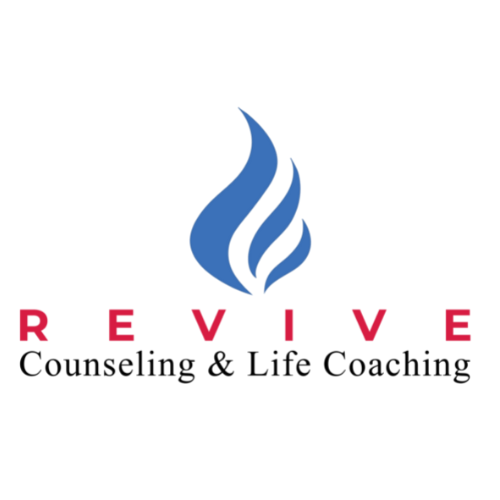Call us now: 918-740-3149
Article 2: Teenager Counseling: Fostering Healthy Relationships and Social Connections
Introduction: Teenager counseling plays a vital role in fostering healthy relationships and social connections among adolescents. It provides a platform for teenagers to explore their interpersonal dynamics, develop empathy, and build meaningful connections with others. In this article, we will explore four key ways in which teenager counseling benefits individuals in fostering healthy relationships and social connections.
- Developing Empathy and Emotional Intelligence: Empathy and emotional intelligence are essential for healthy relationships. Teenager counseling helps adolescents develop empathy by encouraging them to consider others’ perspectives and emotions. Counselors guide teenagers in understanding their own emotions and recognizing and validating the emotions of others. By developing empathy and emotional intelligence, counseling enhances individuals’ ability to form meaningful connections and build healthy relationships.
- Enhancing Communication and Conflict Resolution Skills: Effective communication and conflict resolution skills are fundamental to maintaining healthy relationships. Teenager counseling provides adolescents with tools and strategies to express themselves assertively and listen actively. Counselors teach conflict resolution techniques, such as negotiation, compromise, and problem-solving. By enhancing communication and conflict resolution skills, counseling empowers individuals to build and sustain healthy relationships with their peers, family members, and other significant people in their lives.
- Building Social Confidence and Self-Esteem: Teenager counseling plays a significant role in building social confidence and self-esteem. Counselors help adolescents recognize their strengths, celebrate their accomplishments, and develop a positive self-image. They provide support and guidance in navigating social situations, overcoming social anxiety, and building social skills. By building social confidence and self-esteem, counseling enables individuals to engage more comfortably in social interactions, make new friends, and cultivate meaningful connections.
- Establishing Boundaries and Healthy Relationship Patterns: Establishing boundaries and understanding healthy relationship patterns is crucial for maintaining positive connections. Teenager counseling helps adolescents identify and set boundaries in their relationships, both romantic and platonic. Counselors educate individuals about healthy relationship dynamics, consent, and respect. By establishing boundaries and understanding healthy relationship patterns, counseling empowers individuals to build and maintain fulfilling relationships based on mutual trust and respect.
Conclusion: Teenager fosters healthy relationships and social connections by developing empathy and emotional intelligence, enhancing communication and conflict resolution skills, building social confidence and self-esteem, and establishing boundaries and healthy relationship patterns. By investing in teenager counseling, we invest in the social well-being and interpersonal growth of our adolescents, equipping them with the skills and support needed to form meaningful connections and navigate the complexities of relationships call adam kennedy at 918-740-3149 or see us at reviveclc.com
Teenager Counseling | Add Coping Skills
Article 3: The Role of Teenager Counseling in Building Resilience and Coping Skills
Introduction: Teenager counseling plays a crucial role in building resilience and coping skills among adolescents. It provides a supportive environment for teenagers to develop strategies to manage stress, overcome challenges, and bounce back from adversity. In this article, we will explore four key ways in which teenager counseling benefits individuals in building resilience and coping skills.
- Developing Emotional Regulation: Emotional regulation is the ability to recognize and manage one’s emotions effectively. Teenager counseling helps adolescents develop emotional regulation skills by providing tools and techniques to cope with intense emotions. Counselors teach individuals to identify triggers, practice self-soothing strategies, and engage in activities that promote emotional well-being. By developing emotional regulation, counseling equips individuals with the ability to navigate challenging situations with resilience.
- Enhancing Problem-Solving and Decision-Making Skills: Teenager counseling enhances problem-solving and decision-making skills, critical components of coping with challenges. Counselors guide individuals in analyzing problems, brainstorming solutions, and evaluating the potential outcomes of their decisions. They help teenagers develop a proactive approach to problem-solving and decision-making, fostering resilience and adaptability. By enhancing problem-solving and decision-making skills, counseling equips individuals to face obstacles and make informed choices.
- Building Healthy Coping Mechanisms: Healthy coping mechanisms are essential for managing stress and adversity. counseling supports adolescents in identifying and cultivating healthy coping mechanisms. Counselors introduce various strategies such as mindfulness, deep breathing exercises, journaling, and engaging in hobbies. They help individuals recognize and replace unhealthy coping mechanisms like substance abuse or self-harm with healthier alternatives. By building healthy coping mechanisms, counseling equips individuals with effective tools to navigate challenges and maintain emotional well-being.
- Promoting a Growth Mindset: A growth mindset is the belief in one’s ability to grow, learn, and improve through effort and perseverance. Teenager counseling promotes a growth mindset by helping individuals reframe challenges as opportunities for growth. Counselors encourage individuals to view setbacks as learning experiences and embrace resilience. They emphasize the importance of effort, perseverance, and self-compassion in overcoming obstacles. By promoting a growth mindset, counseling empowers individuals to approach challenges with optimism and resilience.
Conclusion: Teenager plays a crucial role in building resilience and coping skills among adolescents. By developing emotional regulation, enhancing problem-solving and decision-making skills, building healthy coping mechanisms, and promoting a growth mindset, counseling equips individuals with the tools and support needed to navigate challenges, bounce back from adversity, and thrive in the face of difficulties. By investing in teenager counseling, we invest in the resilience and well-being of our adolescents, preparing them for the complexities of life call adam kennedy at 918-740-3149 or see us at reviveclc.com
